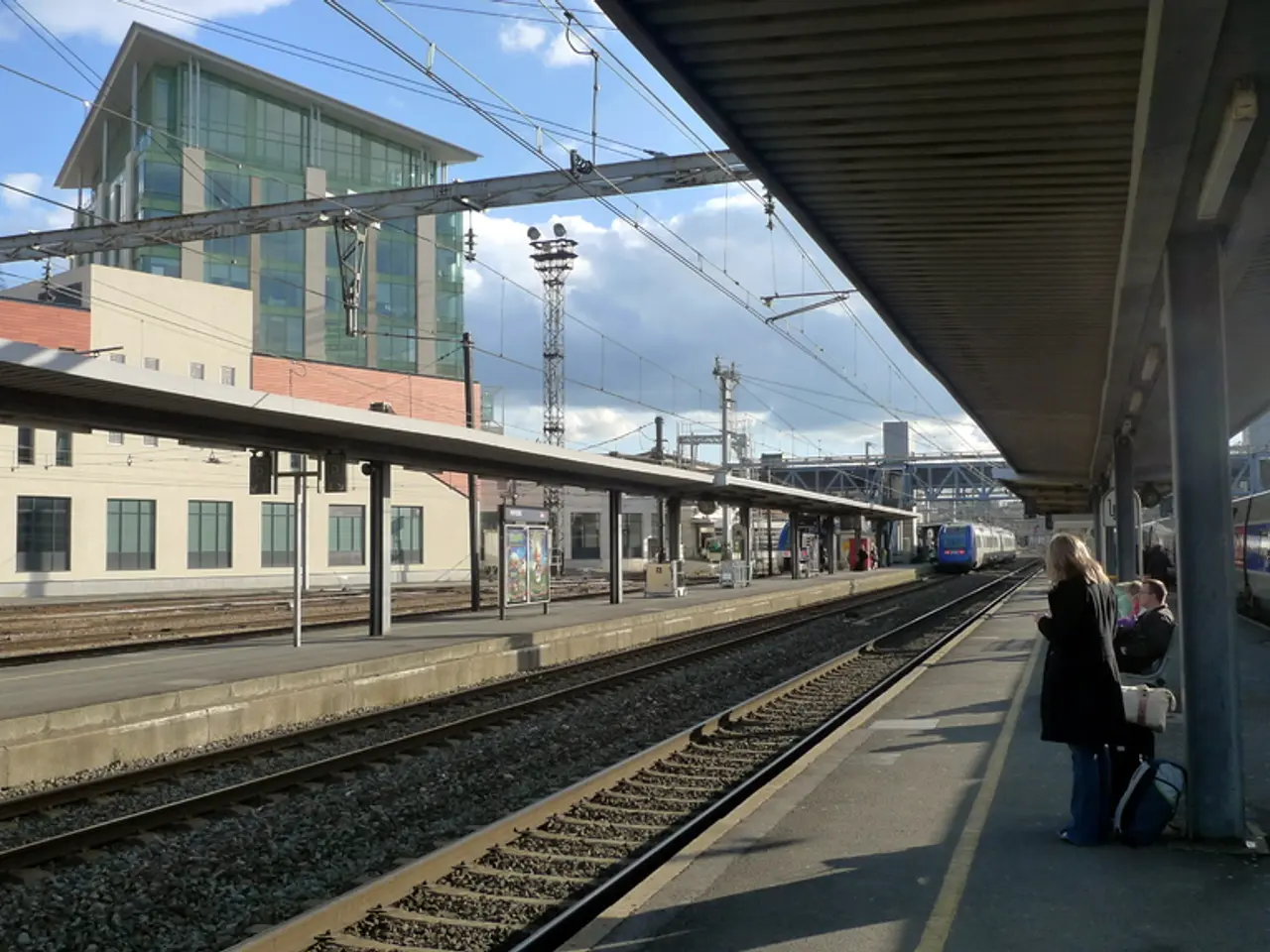Approximately twenty homeless individuals continue to slumber in the proximity of Barajas.
Headline: Madrid Faces Continuing Homelessness Crisis as Temporary Solutions Struggle
In the heart of Spain's capital, Madrid, the city council is grappling with a persistent homelessness issue. Amidst the summer heatwave, many homeless individuals have sought refuge in air-conditioned public places like train and bus stations, hospitals, and even the city's airport.
However, the airport's temporary respite may soon come to an end. Aena, the airport management company, plans to evict a total of 24 people from a nearby park and the access corridors to the T4 parking. This action, while intended to maintain order, could potentially displace these individuals onto the city's streets.
The Madrid City Council has set up an emergency center to address the homelessness issue, but this provisional solution may close due to lack of resources. The center aims to help its users find employment or a way out, but many of the more than 400 homeless people counted by the Archbishopric of Madrid's Hospitality Table have dispersed to different destinations, making outreach and assistance more challenging.
Gaspar García, coordinator of the 'Despega' project of Bokatas, expressed concern about the potential closure of the City Council's center. Bokatas continues to locate homeless people to inform them of available options, but many are reluctant to enter centers.
The Bokatas association views the City Council's center as temporary and subject to certain rules or duration of stay. They advocate for long-term solutions that focus on providing stable housing with supportive services that promote social inclusion and reintegration.
Such long-term solutions could involve expanding the model of shelters that offer not only beds but also services such as food, showers, laundry, and transport cards to help homeless people manage daily life and regain stability. True long-term solutions would also involve affordable permanent housing options, supported by social policies aimed at combating evictions and the housing crisis that Madrid faces.
Social inclusion strategies aligned with these goals include access to temporary housing that leads to permanent accommodation, detoxification and rehabilitation services for those with substance use challenges, and employment support and health care access.
Although the specific policies in Madrid for permanent solutions were not detailed explicitly within the provided information, research indicates that the combination of social inclusion policies, housing assistance, healthcare, and employment programs serves as a best practice model elsewhere and likely informs Madrid’s long-term strategy as well.
In summary, sustainable long-term solutions for homelessness in Madrid involve a shift from emergency shelters to affordable, permanent housing, comprehensive support services fostering reintegration, and prevention of homelessness through housing rights enforcement and eviction reduction. This multi-pronged approach aims to address the root causes of homelessness rather than only its immediate effects.
Despite these efforts, some homeless people have left the airport and have not sought help from Social Services, possibly sleeping in parks in Madrid. The airport has reportedly evicted everyone to the street, potentially exacerbating the city's homelessness issue. It is crucial for the city to continue its efforts in addressing this complex and pressing issue.
References: [1] Source for the information about the shelters in Madrid. [2] Source for the information about the best practice model for long-term homelessness solutions. [3] Source for the information about the combination of social inclusion policies, housing assistance, healthcare, and employment programs. [4] Source for the information about the housing crisis and evictions in Madrid. [5] Source for the information about the lack of infrastructure in Madrid.
People in Madrid, faced with a homelessness crisis, are being displaced from temporary solutions such as air-conditioned public places and the airport, highlighting the need for long-term political policies to address this issue. The City Council's emergency center, while providing services, may close due to lack of resources, necessitating a focus on permanent housing options with supportive services that ensure social inclusion and reintegration for the homeless population.







